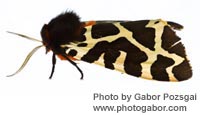You are here
The aim of the ALTER project in Uganda is to improve the management of wetland organic soils for poverty alleviation. The research will focus on both the biophysical and socio-economic aspects of wetland conversion. The project will investigate the impacts of land use management regimes and land use change upon wetland ecosystems, specifically soil organic carbon.
Wetlands contain large amounts of carbon locked up in underpinning organic soils, and cover 13% of Uganda’s total land area (30,105 km2). Between 1994 and 2008, 30% of Ugandan wetlands were lost- a figure that has probably increasing as Uganda’s population continues to accelerate. Draining these soils creates a large source of CO2 emissions, estimated to be some 30 M t CO2 per year- the largest emissions from drained organic soils of all African countries.
The degradation of wetlands:
- reduces the availability of water during droughts and increases vulnerability to flooding during rainy seasons.
- reduces soil nutrient retention, leading to increased pollution of water bodies, especially in Lake Victoria & Albert where fishing underpins the local economy.
- reduces access to wetland goods and services (e.g. material for thatching and fishing) that underpin rural livelihoods, thereby increasing the likelihood of poverty.
Research will examine different agricultural zones of south western and eastern Uganda. The south west is characterised by steep sided valley systems on the edge of the Rift valley, often with wetlands situated in the flat valley bottoms. The area supports high population densities, which has resulted in almost the complete conversion of the wetlands as farmers dig drainage channels to plant vegetable crops. Increasingly farmers are grazing large herds of cattle on the remaining grass wetlands, stressing these systems further. Contrastingly in the east, wetland conversion is driven by the extensive expansion of rice cash crops where quick economics benefit can be realised, despite questions on low term sustainability of such systems as wetland play an important role in regulating water. These issues are increase prominent as the arid Karamoja plains to the north experience seasonal flooding and droughts, and is also the poorest area in Uganda.
Field based research into current wetland soil organic stocks, and the influences that land use change and management has on them, will be undertaken at a number of sites. Social surveying will also be conducted to understand links between rural livelihoods and wetlands, and the decisions faced by stakeholders involved in land use management. Remote sensing and other geospatial data will be collected to develop models for predicting wetland ecosystem loss under business-as-usual and climate change scenarios, as well as analysing future policy impacts.
ALTER will evaluate the value of wetlands for poor communities under a gradient of land use change by identifying the trade-offs and drivers of wetland conversion. The project will use novel approaches that combine spatial analyses of biophysical and socio-economic conditions to identify the changes to wetlands ecosystems expected from current and alternative governance and land management regimes. Guidelines for different interventions to restore, maintain and improve wetland organic soils will be analysed. The multi-site study will provide information that can be applied at a local level to support community-managed projects for poverty alleviation. At a national level, new data and planning tools developed by ALTER can be used to design national action strategies to improve and facilitate investment in wetland soil organic carbon.

